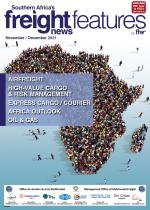Government assistance and improved air connectivity are critical to the recovery of the southern African air sector, according to Kamil Alawadhi, regional vice-president Africa and Middle East for the International Air Transport Association (Iata).“Prior to the pandemic aviation supported 364 000 jobs and contributed $7.6 billion to South Africa’s GDP in 2019,” he said. “But with Covid-19 coinciding with the closure of one airline and restructuring of two others in South Africa, against a weakening economic backdrop, we saw a severe impact on the industry and South Africa’s connectivity.“About 298 000 of the jobs have been put at risk. It’s a significant impact for over 80% of jobs to be lost if air connectivity is not restored, especially when passenger demand for South Africa is not expected to return to 2019 levels until 2026.”This will have a significant impact on the airfreight sector which has been under tremendous strain due to the lack of capacity.Alawadhi highlights three priorities for the South African airfreight sector in particular.“First, financial support and relief to the air transport industry is of critical importance. South Africa’s entire airline industry requires support and financial relief if it is to fulfil its role as an economic enabler and job creator.”He said having recently visited South Africa, where he met with various government officials to discuss the challenges in the country, it was clear government had several levers at its disposal to assist all carriers and service providers, both public and privately owned. “Besides cash or financial guarantees, these include reductions, waivers and discounts on user charges and taxes on air travel and aviation, and wage subsidies.”Alawadhi stressed the importance of keeping taxes and charges in check. “Now is not the right time to overburden the industry with additional charges. We need to work together as an industry to ensure sustainable recovery.”He said a second priority for the country was the adoption of an interoperable digital platform for Cov id-19 testing and vaccination certificates to speed up processes into airports around the country.“Thirdly, it is imperative to increase intra-Africa connectivity. The African Union’s Single African Air Transport Market (SA ATM) is intended to unlock travel and economic benefits within the continent.”According to Alawadhi, an Iata-commissioned econometric study found that the full implementation of SA ATM across the continent would create 14 500 new jobs for South Africa and add $283.9 million to its GDP.“Iata is working on a plan for effective SA ATM implementation, together with the relevant stakeholders, including the Airlines Association of Southern Africa (A ASA), to address the current constraints such as protectionism, states not prioritising aviation, and the negotiation of bilateral agreements (Basa) which have not been completed – and many of which are not fully compliant with the Yamoussoukro declaration.”Just as important, he said, was that the South African government ensured the effective functioning of the South African International and Domestic Air Services Licensing Council to enable the granting of operating licences for new routes and increased frequencies on existing routes to South African carriers.“Aviation remains critical to support economies and is a catalyst for growth. Governments need to prioritise aviation as part of their national strategies and their recovery plans.”

